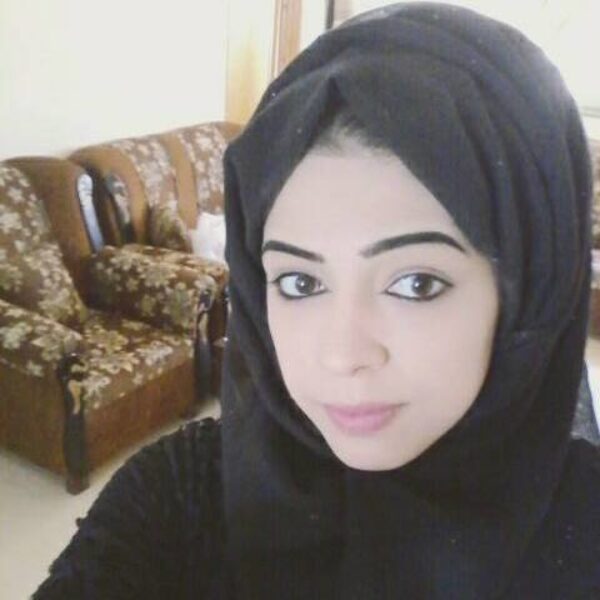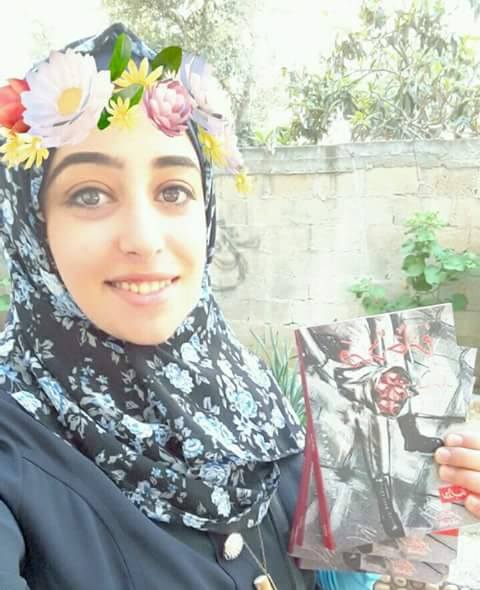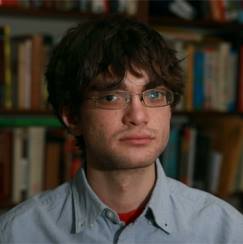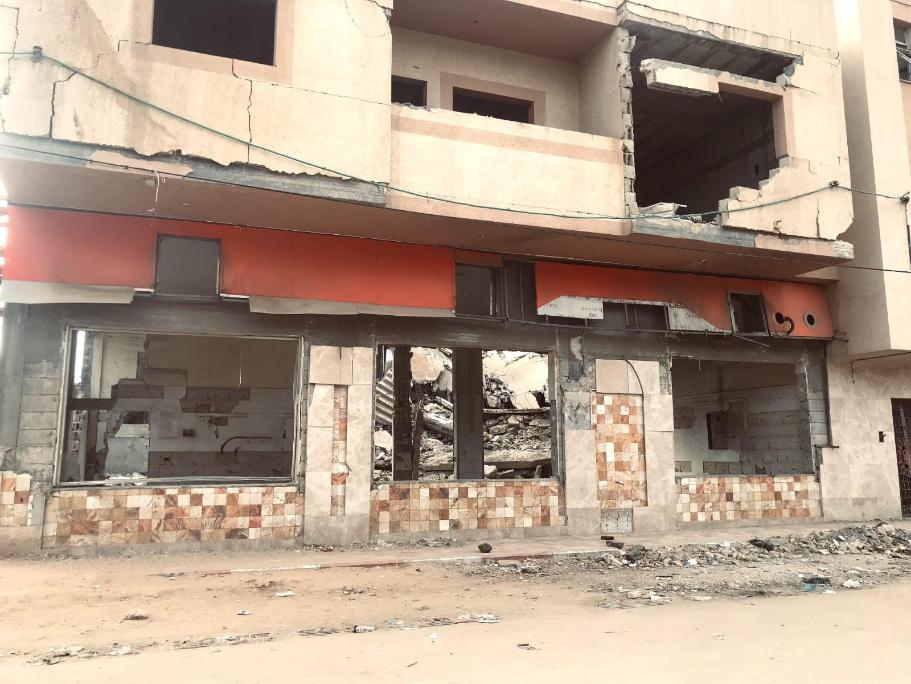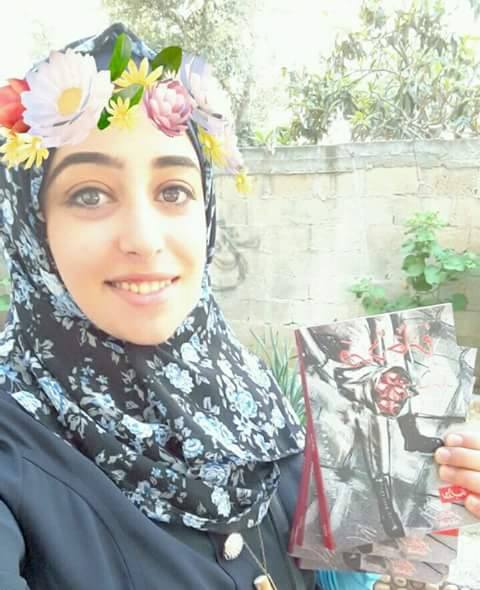
Recently, while scrolling through Facebook posts, I came across an announcement of a new novel written by a 20-year-old Palestinian girl from Gaza named Heba Rayyan. I was interested in part because of the many comments from people eager to read it.
But I also was intrigued because the novel is about an issue close to my heart: the role of women in Gaza, both in society and in the struggle for liberation.
The title of the 190-page novel is “The Affirmed Rose,” so-named because the two main characters are Rose and Hazem, which means “strong and affirmed.” In the book, Rose runs away from home after her stepmother tries to make her marry a man she does not desire. She enrolls in a military training camp, and goes on to fight in the resistance alongside Hazem, and they fall in love.
“Even in war, we can love; in fact, war can strengthen and empower this love,” Heba says. “The one who really knows what love is, is the one thirsty for it and pursues it.” The novel also focuses on the power of passion, showing poignantly that no matter how tough or even cruel humans can be, there is room in their hearts for love.
The role of women in love and war
However, the most important feature of the novel, to me, is its message that women are equally as strong as men, in our own way. In Gaza culture, women are considered the “weaker” sex. We are not usually allowed the same independence as men, for example, when travelling (we must be accompanied), hanging out (we must generally be back home by the evening) and making decisions.
In fact, Heba was inspired to write “The Affirmed Rose” by her frustration with the restrictions imposed by her own family. In her book, the two lovers, Rose and Hazem, are equal partners in love and struggle, and their unwavering love grows stronger during war and conflict. This is true in real life as well. When a woman agrees to send her son or husband to fight, she goes into battle with him in many ways. She teaches her children about the Palestinian cause and its history. And if her loved one is killed in war, she takes sole responsibility for raising her children and keeping his memory alive. At the same time, the novel is about the larger struggle for independence, and how this heritage t must be transmitted from one generation to another to keep it alive until we liberate our homeland.
Reading: a family tradition
After reading the novel, I wanted to get to know Heba. I found out she was raised in a family passionate about reading. Her father is an elementary teacher who loves reading poetry and novels, and her uncle is a poet who escorts her to poetry recitals in Gaza. It was her mother, however, who planted the very first seed of passion for reading. Her mom loves reading, especially about religious topics, and inspired Heba to do the same when she was young. Her mom gave her short stories to read even before Heba enrolled in kindergarten. Heba began to imitate her mom’s reading habits. However, as time passed, she began to read out of passion, wanting to dive deeply into books for the different stories within its pages.
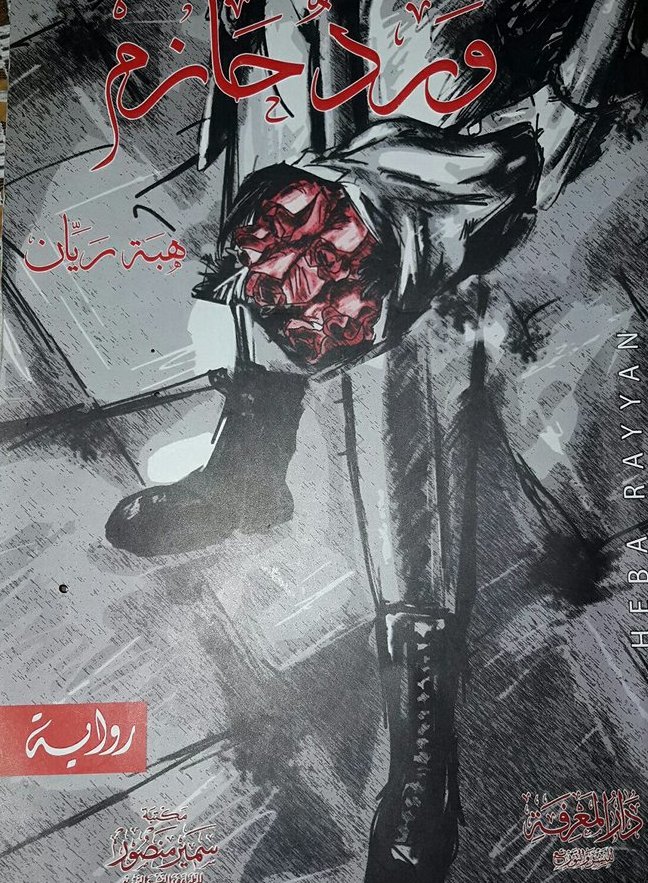
When Heba was 12 years old, there was a poetry-writing competition about the Palestinian cause in her school. It was a golden chance for Heba to practice writing. Her flair grabbed the attention of her teachers, who started coaching Heba.
Discovering her 'muse'
Then, one year in high school during final exams, Heba tried writing a short story to relieve her stress. She titled it, “The Departure of Winter and the Arrival of Spring,” and focused on how to “hang in there” when you’re in pain. That launched her into a different type of writing, in which she uses prose to explore her own and other people’s attitudes toward issues that touch their lives such as war.
“Through writing, I can express all the sorrow and other feelings from deep in my heart,” she says. “Humans die, but their words will never vanish if they record them. I want my own words to linger. I want to write about universal topics so my words will touch people in other places and times who are experiencing similar struggles.”
Heba spent nearly two and a half years writing the novel, starting in February 2014 and finishing in October 2016. During that time, she suffered from writer’s block and stopped writing for five months. Fortunately, two friends urged her to keep writing, convincing her she must leave a footprint on the world by writing the book.
After finishing the novel, Heba asked one of her university professors to proofread the manuscript, and he encouraged her to publish it. Heba submitted it to a Gaza publishing house—the Sameer Mansour Library for Printing, Publication and Distribution—and after sharing it with a variety of critics, the novel was accepted. Since then, it has been published in Egypt as well, was accepted into a book exhibition in Cairo and will in another this fall, in Amman.
What's next?
The success of the novel has energized Heba. However, for now, she is focusing on graduating from Al-Aqsa University, where she is now a junior studying Arabic education. She also wants to travel to earn a master’s degree in art criticism.
“My biggest wish in life is to get a scholarship and travel to complete my higher education. I can’t afford to do that in Gaza either financially or psychologically,” says Heba.
She also is thinking about writing a new novel. This novel, she says, will be about cancer patients and people suffering from psychological trauma.
“I hope to be a great writer and, above all, to be a great human. I want to be the voice of every voiceless person on this earth,” says Heba. “

